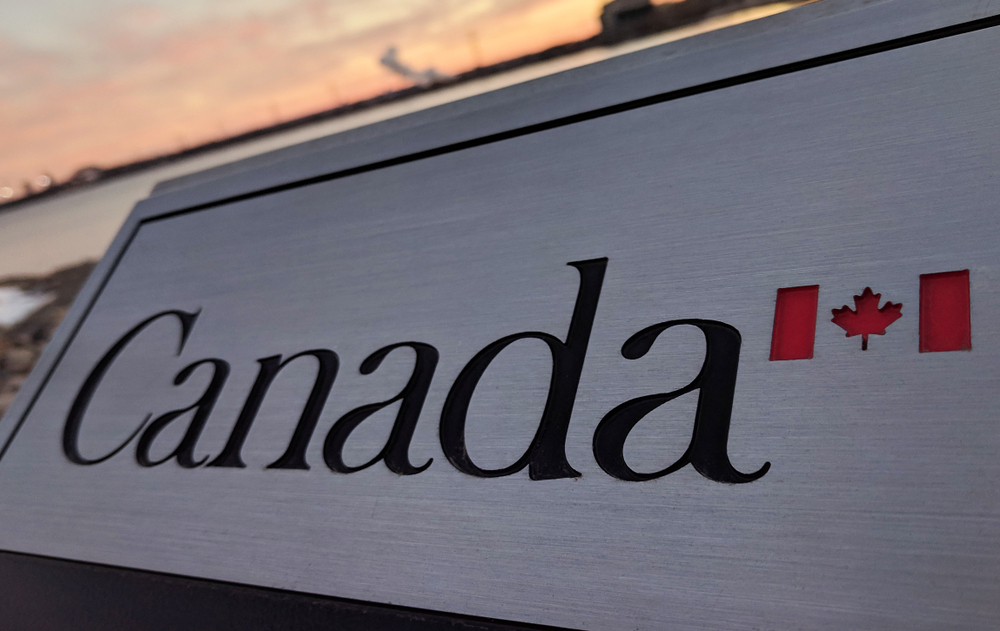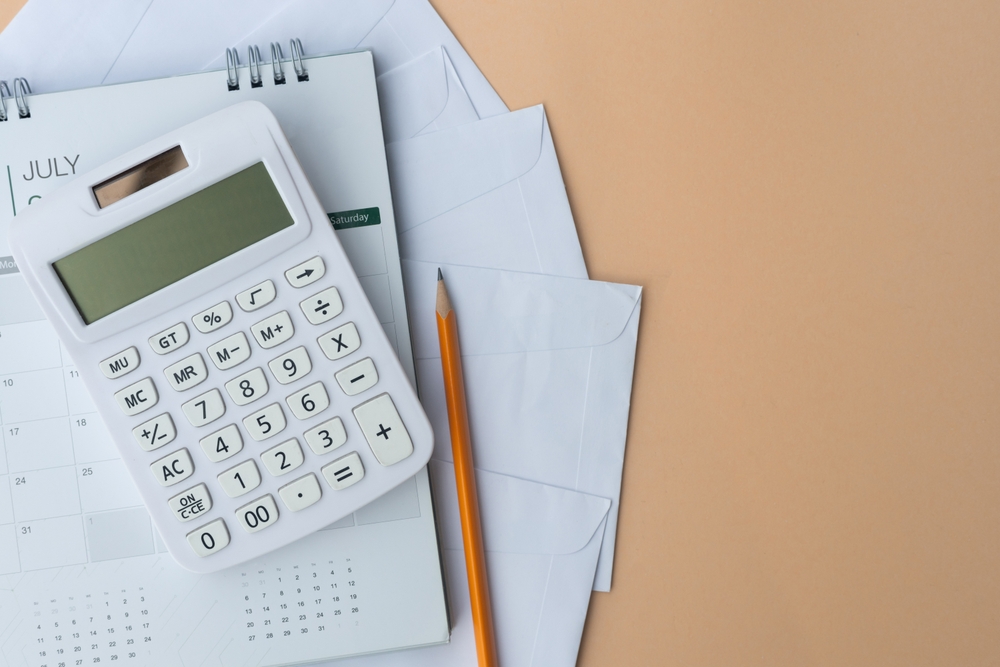How to stop a wage garnishment? Watch our video:
If you’re already struggling to keep up with debt, the idea of losing a chunk of your paycheck can be scary. Unfortunately, for many Canadians, wage garnishment becomes a reality when debt falls behind and creditors take legal action. Understanding how wage garnishment works in Canada, how much of your income can be taken, and what your rights are is the first step toward protecting your finances and regaining control.
Wage garnishment laws vary by province, and the rules can be confusing. This guide breaks everything down clearly, so you know exactly where you stand and what your options are.
Jump to:
- What is wage garnishment?
- How does wage garnishment in Canada work?
- How much of your wages can be garnished?
- Wage garnishment rules by province
- What types of debts can lead to wage garnishment?
- Why wage garnishment is so disruptive
- What are your legal rights with wage garnishment?
- What happens when your employer is notified of a wage garnishment?
- How to stop wage garnishment in Canada
- Can a wage garnishment be reduced or challenged?
- Wage garnishment vs. other debt collection actions
- How a Licensed Insolvency Trustee can help
- What to do if you’ve received a wage garnishment notice
What is wage garnishment?
Wage garnishment is a legal process that allows a creditor (someone you owe) to collect money you owe by taking it directly from your wages. Instead of you making payments yourself, a portion of your income is deducted before it ever reaches your bank account and sent straight to the creditor.
In Canada, this usually happens after a creditor has taken you to court and obtained a court judgment against you. Once that judgment is in place, the creditor can apply for a garnishee order, which legally requires your employer to deduct money from your pay and forward it to them.
This isn’t a voluntary arrangement and isn’t the same as a payroll deduction you’ve agreed to. Wage garnishment is enforced through debt collection laws and is typically used when other attempts to recover the debt have failed.
How does wage garnishment in Canada work?
While the exact process depends on your province, wage garnishment in Canada generally follows the same steps.
First, you fall behind on payments. This could involve credit cards, personal loans, lines of credit, or other unsecured debt. Most creditors will attempt to recover the debt through reminders, collection calls, or negotiations before moving to legal action.
If those efforts don’t work, the creditor may sue you. If the court rules in their favor, they receive a court judgment confirming that the debt is legally owed. With that judgment, the creditor can then request a garnishment order under provincial legislation such as the Civil Enforcement Act.
Once approved, the garnishment order is sent to your employer. From that point forward, your employer is legally required to deduct a portion of your wages and send it to the creditor. This continues until the debt is paid off, the garnishment expires, or legal protection—such as a Consumer Proposal or bankruptcy—is put in place.
Importantly, wage garnishment applies to net income, not gross income. That means deductions like taxes and CPP are taken first, and the garnishment is applied afterward.
How much of your wages can be garnished?
One of the most common questions people ask is how much of their pay can legally be taken. In most provinces, between 20% and 50% of net income can be garnished, depending on the circumstances.
Several factors influence the amount:
- The province you live in
- The type of debt you have
- Whether you have dependents
- Whether the debt is owed to a private lender or the government
Some income is protected to make sure you can still meet basic living expenses, but even with these protections, wage garnishment can have a huge impact on your take-home pay. For households already living paycheck to paycheck, losing even 30% of income can create immediate financial hardship.
Government debts, such as unpaid taxes, may follow different rules. For example, the CRA wage garnishment process allows the Canada Revenue Agency to garnish wages without a court order.
Wage garnishment rules by province
Debt collection laws and wage garnishment limits are set by each province, so the rules can vary depending on where you live in Canada.
In Ontario, wage garnishment limits are generally capped at 20% of net income for most debts, but this can increase in certain situations. Alberta and British Columbia typically allow creditors to garnish a larger portion, often closer to 30–50%, depending on income thresholds and dependents. Quebec has its own rules, including protected income levels that adjust based on household size.
Because these provincial differences can change how much of your income is taken, it’s really important to get advice that reflects the laws where you live. A solution that works in one province may not apply the same way in another.
Speaking with a Licensed Insolvency Trustee is the best way to understand your rights and options.
What types of debts can lead to wage garnishment?
Not all debts automatically result in wage garnishment, but many can if left unresolved.
Common types of debt that can lead to garnishment include:
- Credit card debt
- Personal loans and lines of credit
- Payday loans
- Unpaid utility bills
- Government debts such as tax arrears
Most private creditors must get a court judgment before garnishing wages. Government agencies, particularly the CRA, have broader powers and can act more quickly.
It’s also important to note that wage garnishment is just one form of debt collection. Creditors may also pursue bank account garnishment or asset seizure, depending on the situation.
Why wage garnishment is so disruptive
Wage garnishment doesn’t just affect your finances—it can disrupt your entire life. When income drops suddenly, paying rent, groceries, utilities, and childcare becomes much harder. Many people experience increased stress, anxiety, and fear about how they’ll get through the month.
Because garnishment happens automatically through your employer, it can feel like you’ve lost control over your own income. For families and individuals already under pressure, this can be one of the most difficult aspects of dealing with debt.
The good news is that wage garnishment is not permanent, and there are legally protected ways to stop it.
What are your legal rights with wage garnishment?
Even if a creditor has taken legal action, you still have rights. Wage garnishment must follow proper legal procedures, and errors do happen. In some cases, garnishments can be reduced or challenged due to financial hardship or incorrect calculations.
More importantly, filing a Consumer Proposal or bankruptcy with a Licensed Insolvency Trustee triggers an immediate stay of proceedings. This legal protection stops wage garnishment and other debt collection actions right away, giving you breathing room to reassess your finances and move forward with a structured plan.
What happens when your employer is notified of a wage garnishment?
Once a garnishment order is issued, your employer becomes legally responsible for enforcing it. They must deduct the required amount from your wages and forward it to the creditor as outlined in the court judgment.
Many people worry this will put their job at risk, but in most cases, it does not. Employers are not allowed to terminate your employment simply because your wages are being garnished. While payroll or HR staff may need to process the deduction, the situation is generally handled discreetly and professionally.
That said, the emotional impact can still be uncomfortable. Knowing your employer is involved in your financial situation can feel intrusive—even though wage garnishment is a common and legally regulated process.
How to stop wage garnishment in Canada
The most important thing to know is that wage garnishment can be stopped. Canadian debt laws provide clear, legal options for protection.
Filing a Consumer Proposal to stop wage garnishment
A Consumer Proposal is one of the most effective ways to stop wage garnishment while avoiding bankruptcy. When you file a Consumer Proposal through a Licensed Insolvency Trustee, an immediate stay of proceedings comes into effect. This legal protection stops wage garnishment, bank account garnishment, and other debt collection actions right away.
A Consumer Proposal allows you to:
- Reduce the total amount you owe
- Consolidate unsecured debts into one manageable payment
- Keep your assets and income
- Pay back debt over time, interest-free
For many people, this option provides relief without the longer-term impact associated with bankruptcy.
Filing for bankruptcy to stop wage garnishment
In more severe financial situations, bankruptcy may be the most practical solution. Like a Consumer Proposal, filing for bankruptcy immediately triggers a stay of proceedings, stopping wage garnishment and creditor legal action.
While bankruptcy does have a greater impact on your credit score, it also provides a clear and structured path forward when debts are unmanageable. A Licensed Insolvency Trustee will explain how your income, assets, and obligations are affected, making sure you understand every step.
Can a wage garnishment be reduced or challenged?
Yes, in some situations, wage garnishment can be reduced or even stopped altogether. If the garnishment is creating financial hardship for you, there may be options to challenge it through the court system, depending on the laws in your province.
Garnishments can also be challenged if:
- The amount being taken is incorrect
- Proper legal steps were not followed
- Exempt income was improperly included
These situations can be complicated, and getting the right guidance is key. A Licensed Insolvency Trustee can take a close look at your wage garnishment and help you understand if any relief options are available in your case.
Wage garnishment vs. other debt collection actions
Wage garnishment is one of the more serious and disruptive ways creditors collect debt—but it’s not the only one.
Wage garnishment vs. bank account garnishment
With bank account garnishment, funds can be frozen and withdrawn directly from your account, often without warning. It’s sudden and can leave you without access to your own money.
Wage garnishment, on the other hand, is more predictable since it comes off your paycheck regularly. But it reduces your income over time, which can make day-to-day budgeting a real challenge.
Wage garnishment vs. asset seizure
Asset seizure means creditors can take your personal property—like a vehicle or equipment—to recover what you owe. This process is more complex for them, so creditors often prefer wage garnishment for its steady stream of payments through your employer.
How a Licensed Insolvency Trustee can help
A Licensed Insolvency Trustee (LIT) is the only professional in Canada legally authorized to help with Consumer Proposals and bankruptcies. They’re regulated by the federal government, and they act as a neutral third party—focused on helping you find the best way forward.
An LIT can:
- Stop wage garnishment immediately
- Review all your debt relief options and explain what each means for your situation
- Communicate directly with creditors on your behalf
- Help you build a realistic plan to move toward financial stability
The best part? Consultations with an LIT are confidential, judgment-free, and often come at no cost to you.
What to do if you’ve received a wage garnishment notice
If you’ve received a notice about wage garnishment, don’t wait. It won’t go away on its own, and the longer you delay, the more you risk losing from each paycheck.
Here’s what to do:
- Read the notice carefully to understand what it says
- Confirm which debt the garnishment is for
- Talk to a Licensed Insolvency Trustee as soon as possible
Taking that first step can feel overwhelming, but the sooner you act, the more options you’ll have.
Wage garnishment FAQs
Can wage garnishment be stopped immediately?
Yes. Filing a Consumer Proposal or bankruptcy creates an immediate stay of proceedings, which legally stops wage garnishment and other debt collection actions right away.
How long does wage garnishment last?
Wage garnishment continues until the debt is paid, the garnishment expires, or legal protection is put in place. Without intervention, it can last months or even years.
Can CRA garnish wages without court orders?
Yes. The CRA wage garnishment process allows the Canada Revenue Agency to garnish wages for tax debt without obtaining a court judgment. CRA doesn’t even need to give you warning; they can simply apply the garnishment, unlike other creditors that have to go to court to obtain a garnishment order.
Will wage garnishment affect my credit score?
The garnishment itself does not directly impact your credit score, but the underlying court judgment and unpaid debt will already have affected it.
Can my employer fire me for wage garnishment?
In most cases, no. Employers generally cannot terminate employment solely because your wages are being garnished.
Does wage garnishment apply to self-employed income?
Traditional wage garnishment applies to employment income, but creditors may pursue other debt collection actions against self-employed individuals, such as bank account garnishment, or approaching your accounts receivables and seizing 100% at that source.










